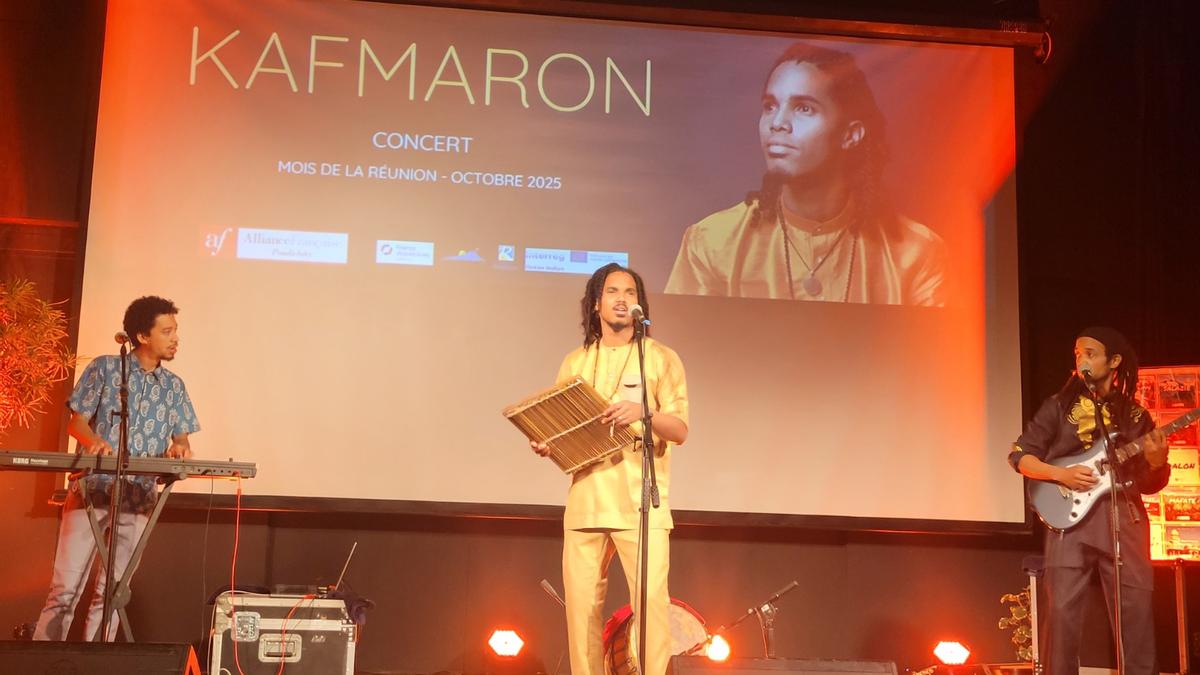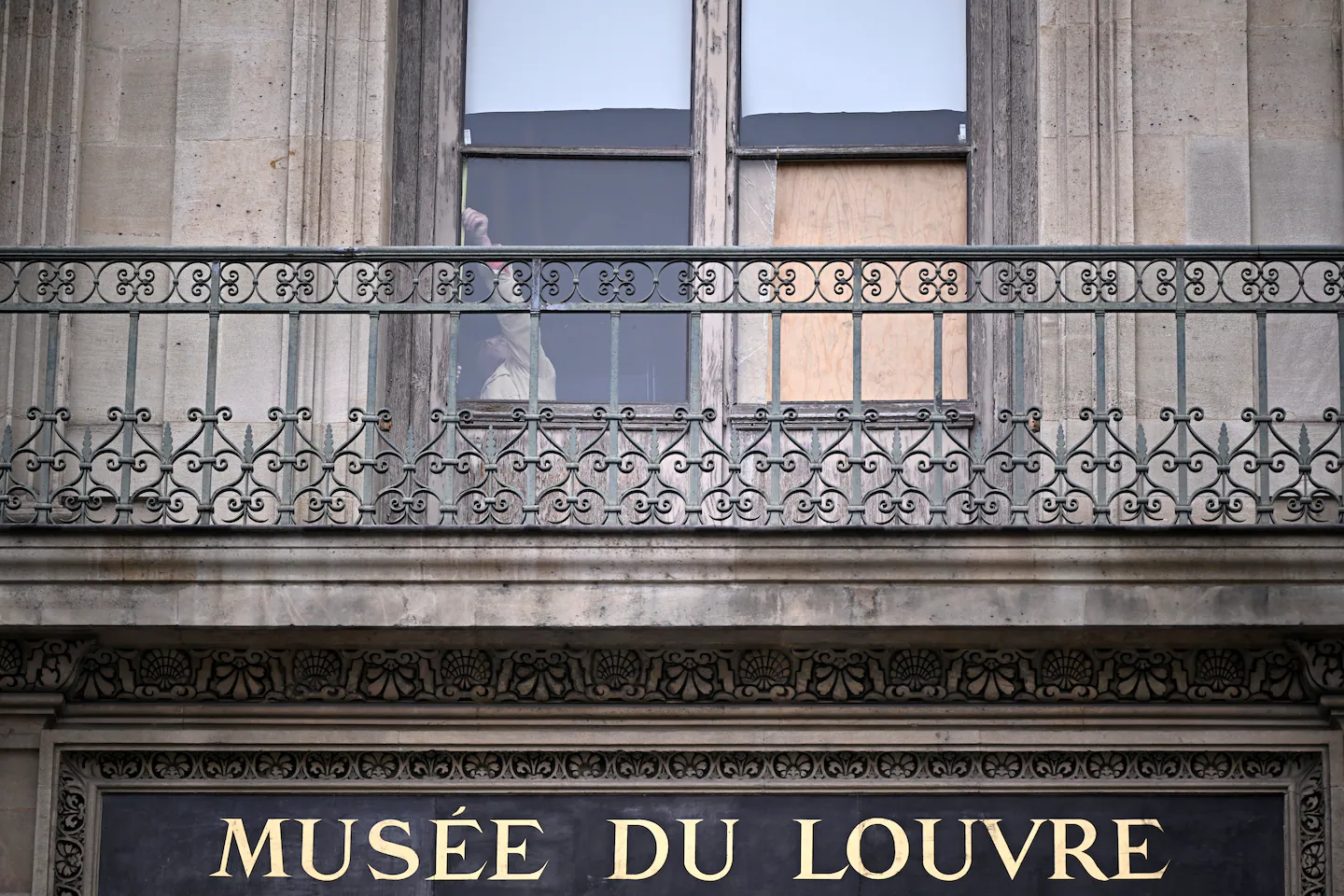Copyright thehindu

The music of the Indian Ocean came in acoustic waves, in a blend of soulful melody and protest poetry, rousing rhythms and plaintive notes during a concert by Reunion Island musician Kafmaron. Kafmaron, singer-songwriter, performed as a three-piece band, with Emmanuel Turpin on the keyboard and Romain Aly Beril on guitar, at the concert hosted by Alliance Française de Pondichéry as part of its recent ‘Month of Reunion Island’ festival. The Kafmaron sound is rooted in the Maloya genre unique to Reunion Island with its eclectic fusion of jazz, slam and reggae influences. The artist, who is also touring other venues in India to promote the new album, “Bémasoune” (roughly meaning abundance of sunlight), chose a set-list for the night that would be a mix of new and few popular songs from past discography. As he probably does at his concerts, the musician chose to be interactive with his listeners, sharing snippets about his homeland, the diversity of its charming landscapes, its history of indentured labour and how Maloya music became a vehicle of working class resistance against colonial oppression (in fact, the music was even banned by authorities to quell the resistance). The music video of ‘Rèv dékolonyal’ from ‘Bémasoune’ was shot in the ‘Piton Bé Massoune’, a stronghold of Maroon resistance against colonial slavery. And, like someone intuitively aware that most people wouldn’t be able to locate Reunion Island on a map, Kafmaron cued in his audience stating that “we are next-door to Mauritius”. Only to immediately ask them, jokingly, to forget Mauritius tonight and zoom in on Reunion. “We have a mixed culture,” he said as a pointer to how the island’s living traditions were shaped by intersecting influences of Africa, Europe, and Asia (predominantly South India/Puducherry region). “Reunion Island, governed as a French overseas department, has historically witnessed migration of labourers from Tamil-speaking regions of the south... we also have temples and we eat masala and listen to the same music as you do”, he said. This was music that shared affinities with southern sensibilities around rhythm, chorus phrasing and harmony, he would say. And, to demonstrate the point musically, the musicians launched into the lilting “Kavadi”, an obviously south Indian-sourced inspiration. Kafmaron would pick up the kayamb, a kind of flat shaker unique to the Maloya-Sega musical genres of Reunion Island for a few songs, or sit down with the cajon-like rouler percussion instrument for other tracks, especially the irresistible ‘Lokal’ from his previous album ‘Lankarz’ for which he goaded the audience to hit the floor. The keyboardist, who had also paired up with Aly Beril for a musical reading event anchored by the island’s prominent author Gaëlle Bélem, often injected elements of surprise with chord changes, even a few delectable touches after an outro. The presentation for the night was as much a celebration of Creole quintessence, as a music-driven conversation of a range of social issues such as identity crisis of post-colonial societies, historical resistance of plantation workers and alcoholism-fuelled domestic violence. If ‘Roulman malèr’ (prison of sadness) spoke about addiction, a shackled existence for the affected and toxic love and ‘Yeboni’ tackled questions of identity, ‘Santyé lamour’ was serenade-level stuff with planetary metaphors (the guy likening his eternal love for his sweetheart to the earth orbiting the sun). Kafmaron closed out the concert with the crowd on its feet singing along and clapping hands to traditional Sega track and the ‘Valet Valet’ song with its eponymous refrain, essentialising traditional Maloya music and its deep-running African and Malagasy roots.



